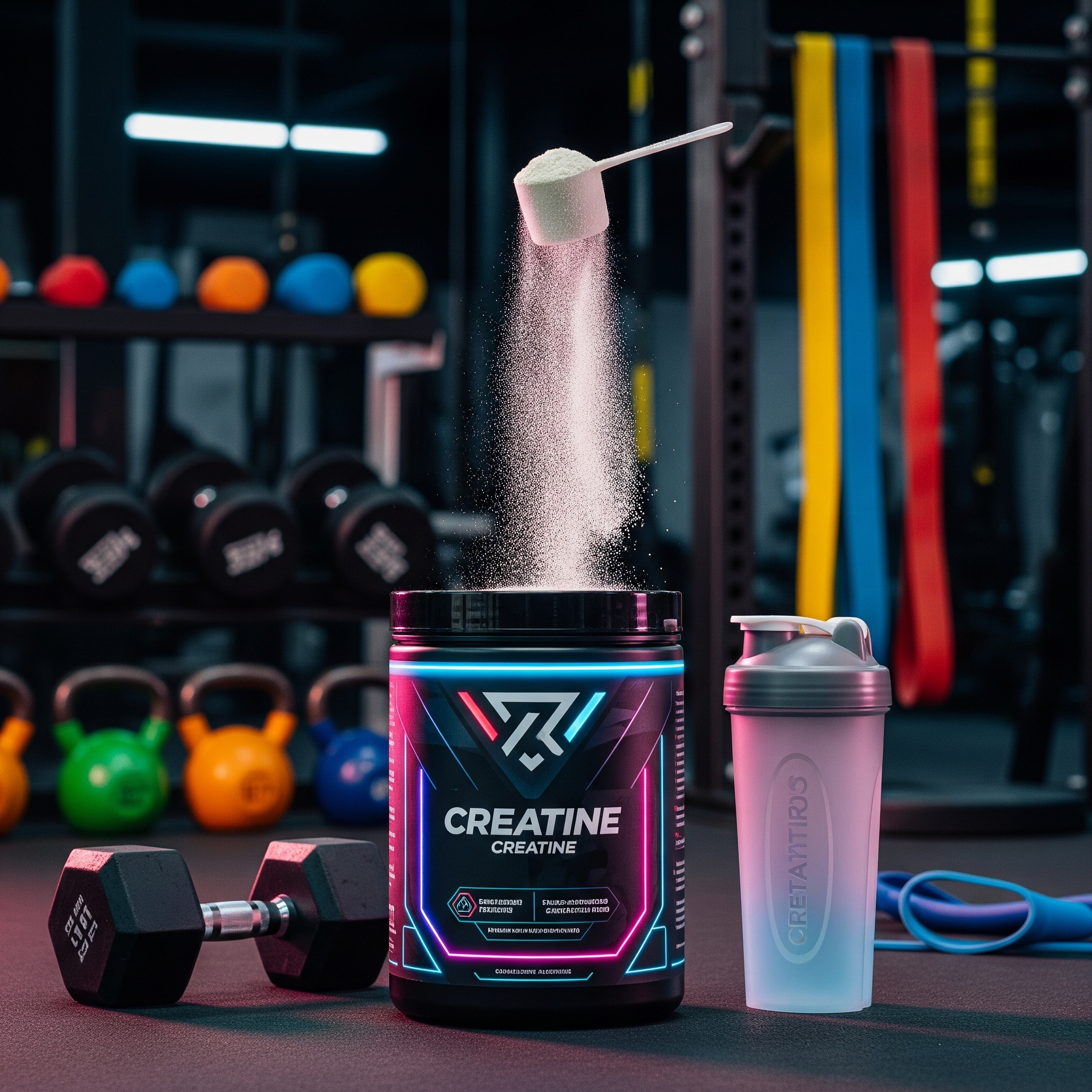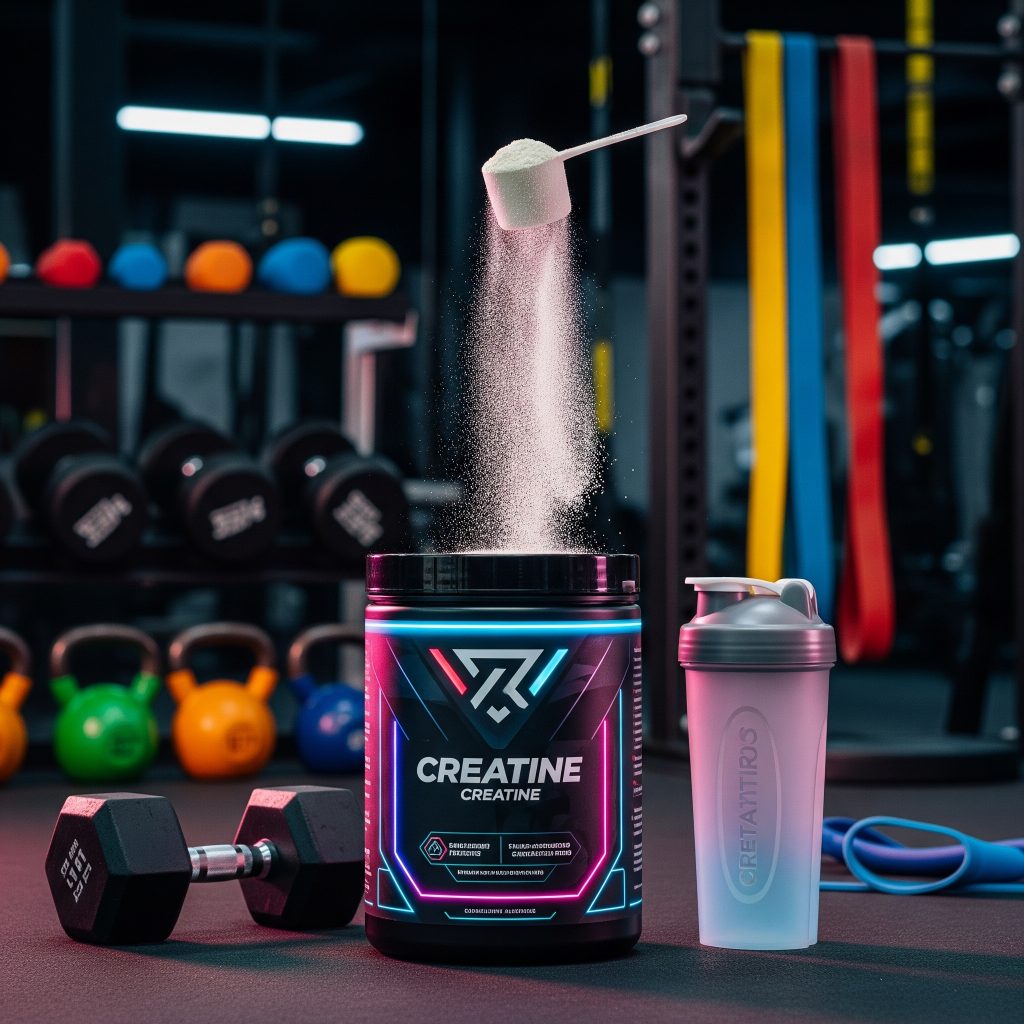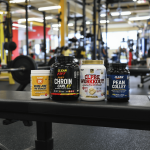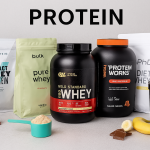Creatine. You’ve likely heard the buzz in the gym, seen it on supplement shelves, or read about it in fitness articles. But what exactly is this popular supplement, and could it be the key to unlocking your next level of health and fitness? If you’re in the UK and looking to boost your performance, build muscle, or even support your overall well-being, this guide is for you.
For years, creatine has been a go-to for athletes and fitness enthusiasts alike, and for good reason. It’s one of the most researched sports supplements on the market, with a strong backing of scientific evidence supporting its efficacy and safety. This comprehensive guide will delve into what creatine is, how it works, its incredible benefits, how to use it effectively, and a look at some of the top creatine brands and products available right here in the UK.
What Exactly is Creatine and How Does it Work?
Creatine isn’t some mystical powder; it’s a naturally occurring compound made from three amino acids (glycine, arginine, and methionine). Your body produces it primarily in the liver, kidneys, and pancreas, and it’s also found in small amounts in foods like red meat and seafood.
The science behind how creatine works is fascinating yet straightforward. Your body stores most of its creatine in your muscles as phosphocreatine. During short bursts of high-intensity exercise, like lifting weights or sprinting, your muscles use adenosine triphosphate (ATP) as their primary energy source. When ATP is used, it loses a phosphate group and becomes adenosine diphosphate (ADP). Phosphocreatine steps in to donate its phosphate group back to ADP, rapidly regenerating ATP.
Essentially, having more phosphocreatine stored in your muscles means you can produce ATP more quickly, allowing you to perform more reps, lift heavier, sprint faster, and generally work at a higher intensity for longer. It also plays a role in activating satellite cells in your muscles, which are crucial for muscle repair and growth.
The Powerful Benefits of Creatine for Your Fitness Goals
The advantages of creatine supplementation extend across various aspects of health and fitness:
- Enhanced Muscle Growth and Strength: This is perhaps the most well-known benefit. By enabling you to do more work during your training sessions, creatine helps stimulate greater muscle protein synthesis, leading to increased muscle mass and strength over time. Studies consistently show that individuals supplementing with creatine experience more significant gains in lean body mass and strength compared to those who don’t.
- Improved Athletic Performance: Creatine excels in boosting performance in activities requiring short, intense bursts of energy. This includes weightlifting, sprinting, jumping, and sports like football or rugby where explosive power is key. Users often report being able to push harder and recover more quickly between sets or efforts.
- Faster Muscle Recovery: Exercise creates micro-tears in your muscle fibres. Creatine can help speed up the repair process by reducing muscle cell damage and inflammation following intense exercise. This means less downtime and quicker readiness for your next training session.
- Potential Cognitive and Health Boosts: The benefits aren’t just physical. Creatine is also found in the brain, and research suggests supplementation might improve cognitive functions like short-term memory and reasoning, particularly in older adults and vegetarians (who typically have lower baseline creatine levels). It may also help counteract age-related declines in muscle and bone density.
How to Use Creatine Effectively and Safely
Getting the most out of creatine is simple if you follow a few key guidelines:
- Choosing the Right Type – Creatine Monohydrate Reigns Supreme: While various forms of creatine exist (like creatine ethyl ester or creatine HCL), creatine monohydrate is the most extensively studied, proven effective, and generally the most affordable. For most people, it’s the best choice. Look for micronised versions if you want improved mixability.
- Dosage – How Much Should You Take?: The most common approach is a daily maintenance dose of 3-5 grams.
- Loading Phase (Optional): Some people start with a “loading phase” of 20 grams per day (split into 4 doses of 5 grams) for 5-7 days to saturate their muscles more quickly. While this can lead to faster results initially, it’s not strictly necessary; a consistent 3-5 gram daily dose will achieve full muscle saturation within 3-4 weeks. Skipping the loading phase can also reduce the chance of mild stomach discomfort some experience with higher doses.
- Timing – When is the Best Time to Take Creatine?: Consistency is far more important than timing. Take your creatine daily, at whatever time is most convenient for you – whether it’s before your workout, after, or with a meal.
- Staying Hydrated – The Importance of Water: Creatine draws water into your muscle cells (which is part of how it works and contributes to cell volumisation). Therefore, it’s important to drink plenty of water throughout the day to stay adequately hydrated and support creatine’s function.
Addressing Common Concerns: Creatine Side Effects
Creatine is one of the safest sports supplements available when used as recommended. Decades of research support its safety profile in healthy individuals. However, some minor side effects can occur:
- Water Retention/Weight Gain: Creatine increases water content in muscle cells, which can lead to a slight increase in body weight (typically 1-2 kg) in the initial stages. This is primarily water weight within the muscle, not fat gain, and is often associated with increased muscle size.
- Stomach Upset: Some individuals might experience mild stomach discomfort, bloating, or diarrhoea, particularly with higher doses (like during a loading phase) or if not taken with sufficient water. Taking smaller doses or a micronised form can help mitigate this.
- Dispelling Myths: Contrary to some outdated concerns, creatine does not cause kidney damage or liver damage in healthy individuals when used at recommended dosages. Numerous studies have debunked these myths. It’s also not a steroid.
When to consult a doctor: If you have pre-existing kidney or liver conditions, or diabetes, it’s always wise to consult your GP before starting any new supplement, including creatine.
Top Creatine Brands and Products in the UK
The UK market offers a fantastic selection of high-quality creatine products. When choosing, look for reputable brands that offer pure creatine monohydrate, ideally micronised for better mixability, and check for third-party testing if you’re a competitive athlete. Here are some well-regarded brands and products you can find in the UK:
- Optimum Nutrition Micronised Creatine Powder: A hugely popular choice, known for its purity and micronised form, making it easy to mix. Widely available and consistently receives good reviews.
- Myprotein Creatine Monohydrate / Impact Creatine: Myprotein is a staple UK brand offering affordable and high-quality creatine monohydrate, available in powdered and tablet forms, often with flavoured options too.
- Bulk Pure Creatine Monohydrate Powder: As the name suggests, Bulk focuses on providing pure ingredients. Their creatine monohydrate is another excellent, no-frills option popular for its quality and value.
- Applied Nutrition Creatine Monohydrate: Often micronised and tested for athletes (Informed-Sport certified), making it a trusted choice for those concerned about banned substances.
- Warrior Creatine Monohydrate: Known for its effective formulas, Warrior offers creatine monohydrate that’s often micronised and comes in various flavours or unflavoured.
- Thorne Creatine: A brand often recognised for its high-quality and clean supplement formulations, Thorne’s creatine is NSF Certified for Sport.
You can find these and other reputable brands at major health food retailers like Holland & Barrett, online supplement stores, and even some larger supermarkets across the UK.
Making Creatine Work for You: Tips for Success
- Consistency is Crucial: Take it daily, even on rest days, to keep your muscle stores saturated.
- Combine with a Balanced Diet and Proper Training: Creatine is a supplement, not a magic pill. It works best when combined with a sensible nutrition plan and a consistent, challenging training program.
- Listen to Your Body: While side effects are rare and mild, pay attention to how you feel and adjust if necessary (e.g., ensure adequate water intake).
Conclusion: Is Creatine Right for You?
For most individuals in the UK looking to enhance their muscle growth, boost strength, improve high-intensity exercise performance, and accelerate recovery, creatine monohydrate is an exceptionally effective and safe supplement. Its benefits are well-documented, it’s affordable, and easy to use.
Whether you’re a seasoned athlete, a regular gym-goer, or just starting your fitness journey, creatine can provide that extra edge to help you reach your goals faster. By understanding how it works and how to use it correctly, you can confidently incorporate it into your routine.
What are your experiences with creatine? Do you have any favourite UK brands or tips to share? Join the conversation in the comments below!





